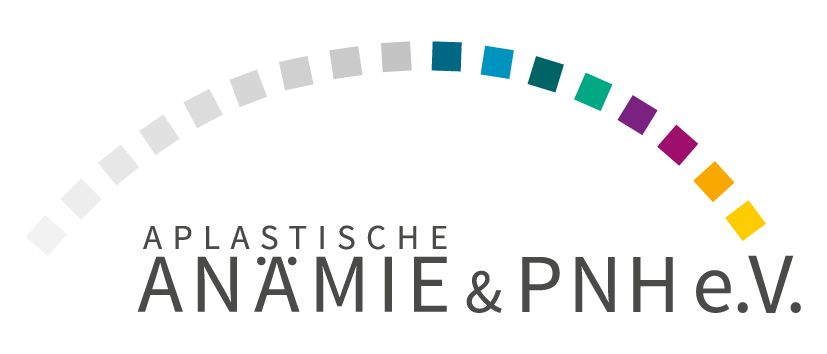
Patient story by Michael Kaiser
When I was diagnosed with the disease (August 1984), I was just over 18 years old. Growing up was totally different from what I expected.
My admission to the clinic was quite dramatic, because I was already very weak and had lost so much blood due to a dental treatment that the doctors were initially occupied by keeping me alive for a few days before they could establish a diagnosis. The following weeks at the clinic were a huge psychological burden for myself and my parents.
In November 1984, I received the first ATG therapy (rabbit serum), which was not successful. In February 1985 I had the second ATG treatment; this time with horse serum, and I was lucky: the values improved slowly and I was able to start an apprenticeship in September. The treatment was done without any immunosuppressants, but with high doses of cortisone. The values stabilised over the years to the point where I could live a “normal” life. I got married, had two children, got a good job (and spent too much time at work!).
In 1995 the values started to get worse, so that in May 1997 I had to go back to the clinic where I had my third ATG treatment, this time with Sandimmun®. After about six months I went back to work, but the values never recovered or stabilised properly.
In October 2000, after some private problems (including separation and divorce) I had a further relapse, which hit me very hard. I was poorly stabilised by the transfusions and treated a few times with Sandimmun®, but without success. It was hard to know what to do. A fourth ATG therapy seemed to be too risky and unpromising, while a transplant looked pointless and even dangerous, given my history and the fact that only an unrelated donor would have been eligible.
As my condition continued to deteriorate, the doctors and I jointly decided for a bone marrow transplantation (BMT). I was very lucky, as a suitable donor was soon found and a date for the BMT was set. I was admitted to hospital on 25.10.2001, received new stem cells on 09.11.2001 and was released from hospital on 30.12.2001. My time in the clinic and afterwards was very difficult and intense, but now I’m doing really well. Particularly after leaving hospital, it was very important for me to search for and find my own way, and that gave me back something like an everyday life. The regulations and restrictions following the BMT were very burdensome, but necessary. However, I couldn’t manage everything perfectly, since I lived by myself and could hardly get help from others.
Since my last relapse in October 2000 I have had almost no infections or other problems. I think this is because, although I was still weak, I was mostly out in the open and getting plenty of exercise, and I was treated by a very good homeopath. I’m convinced that homeopathy, in addition to the outstanding achievements of conventional medicine (special thanks to Ms. Waterhouse at the München-Schwabing Hospital and Mr. Kolb at the Grosshadern Hospital), as well as my own efforts and my positive attitude, have made a significant contribution to my being able to live with severe aplastic anaemia for so long and that I could recover so quickly (and sustainably) after the BMT.
Since early March 2002, I have not taken any medication, my values have improved greatly and I’ve been stable for over 15 years.
I received a disability pension from April 2002 to September 2002, and from 01.10.2002, less than a year after the transplant, I was able to return to work in business. I was initially employed for 30 hours a week.
My wish to pass on my experience to others and reorient my private professional life became stronger and stronger.
My next step was to train as a “Teacher for exercise, body awareness and fitness” and I gave part-time courses in this area. In 2008, I finally took a big step and became an alternative practitioner of psychotherapy. I now work for 20 hours a week as a board member at MFM Deutschland e.V. and work as an alternative practitioner in psychotherapy, lecturer and Qigong teacher.
In my private life I found my great love and became a father for the third time, even though the doctors had said I was infertile due to the transplant.
What was important in all stages of my illness was that I always grasped my opportunities and continued to fight in spite of all the disappointments and setbacks. I’m convinced that you can always find a way if you believe in yourself and don’t give up, even if you seem to have hit rock bottom.
I wish all the best to patients with AA and hope that they too will find a way with the help of their doctors to live with the disease and perhaps be cured.
Anyone who is interested is welcome to contact me or read my story in my autobiography “Something old, something new”.
You can contact me by email at kaiser.dachau(at)arcor.de
Dachau, August 2020

